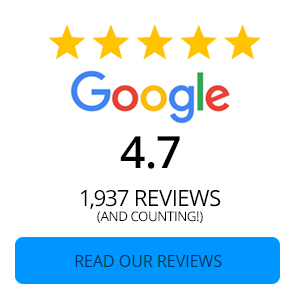Let's face it — fraud is everywhere these days. Whether it's a suspicious email, a phone call that doesn't feel quite right, or a fake website asking for your information, scammers are getting more creative by the day. And while older adults are often targeted, the truth is that anyone can fall victim.
When it comes to fraud detection and prevention, a little awareness goes a long way. In this article, we'll walk you through common types of scams and share five practical tips to help keep your finances safe.
At Coosa Valley Credit Union, your security is our priority. If you ever have concerns about suspicious activity or account safety, don't hesitate to reach out. Wondering about credit union safety? Our fraud prevention services and reporting center are here to help protect what matters most.
Are Credit Unions Safe?
When it comes to the safety of credit unions —credit unions and banks are on equal footing. Both are federally insured (credit unions through the National Credit Union Administration (NCUA) and banks through the FDIC) which means your deposits are protected up to $250,000. So yes, your money is just as safe at a credit union as it is at a bank.
What sets credit union safety apart is how they operate. They're not-for-profit and member-owned, which means their focus is on serving you, not shareholders. Profits are returned to members through lower fees, better interest rates, and more personalized service.
Stay Safe: 5 Practical Tips to Prevent Financial Fraud
These days, scams are everywhere — and some can be pretty darn convincing. With a little know-how and a few simple habits, you can stay one step ahead and protect yourself with confidence.
Stay informed and up-to-date
Knowledge is your best defense. The more you know about current scams, the better prepared you'll be to spot them. Resources like AARP's Fraud Watch Network are a great place to start, offering real-time updates on common scams, red flags to look out for, and practical tips to protect yourself online and off. The AARP fraud helpline, 877-908-3360, is also free and available to anyone.
Keep your personal info private
Be careful about who you share your personal and financial information with, especially online or over the phone. Scammers often pose as trusted companies to trick you into giving up details like your Social Security number, bank info, or passwords.
A good rule of thumb: if you didn't start the conversation, don't share your info. When in doubt, hang up or delete the message and contact the company directly to confirm it's legit.
Protect and secure your devices
Nowadays, our phones can do a bulk of our online banking. Your phone, tablet, and computer hold a lot of personal information and it's important to keep them secure. Make sure your devices are running the latest updates and have reliable security software installed. Avoid clicking on links, scanning QR codes, or downloading apps from unfamiliar sources, as they could contain malware designed to steal your info.
Watch out for unsolicited offers
If a random email, call, or message promises something that sounds too good to be true — it probably is. Scammers often use urgency or pressure to get you to act quickly without thinking. Don't give out personal info or make any payments on the spot. Take a step back, do a little research, and talk it over with someone you trust before moving forward.
Here are some common red flags to watch for:
- Someone claiming to be from the government, a bank, or a business asking for money or sensitive information.
- Being told you've won a prize or gift — but you have to pay taxes or fees upfront to claim it.
- Requests to send money via wire transfer, cryptocurrency, prepaid cards, payment apps, or gift cards.
- Anyone asking for access to your financial accounts, cards, or digital wallets.
- High-pressure tactics like "act now or lose this opportunity" or not giving you time to think it through.
The Consumer Financial Protection Bureau warns that advances in artificial intelligence are making scams more convincing than ever. Scammers can now mimic voices and alter images to create fake emergencies, trying to rush you into action with messages that stir up fear or urgency.
Always pause and verify before responding — contact the person directly using contact information you already know. If you can't reach them, try reaching out to someone else you both trust, like a family member or close friend, before making any decisions.
Keep an eye on your accounts
The sooner you catch suspicious activity, the better. Make it a habit to check your bank and credit card statements regularly and review your credit report at least once a year. If something looks off, report it to your financial institution right away.
For extra peace of mind, consider setting up account alerts, using a credit monitoring service, or put your number on the National Do Not Call Registry. These tools can help you stay one step ahead of fraud.
Protect Your Assets with Coosa Valley Credit Union
Taking these five easy steps can make a big difference in keeping your money and personal information safe from fraud. Fraud prevention is a team effort, and together, we can build a stronger, safer community. Have questions or want to learn more about protecting your finances with Coosa Valley Credit Union? Give us a call today — we're here to help!

